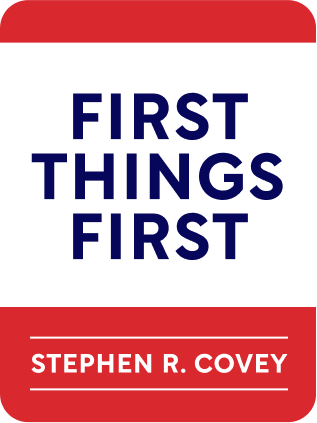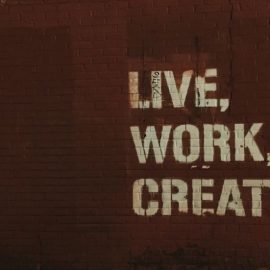

This article is an excerpt from the Shortform book guide to "First Things First" by Stephen R. Covey. Shortform has the world's best summaries and analyses of books you should be reading.
Like this article? Sign up for a free trial here .
Have you ever failed goal you worked so hard towards? Why do you think that was and why do goals fail in general?
If you’ve ever failed an important goal, you’ve probably wondered about what prevented you from reaching it. But have you ever thought about it in a more general sense? Why do goals fail more often than not?
Keep reading to answer the question “why do goals fail?” and more.
Why Do Goals Fail?
Have you ever made a New Year’s resolution that fell flat by February? Or felt a moment of inspiration and set an ambitious goal that you just couldn’t reach? You probably couldn’t help but wonder, “Why do goals fail? What’s the number one reason?”
Sometimes, you fail to reach your goals because they’re unrealistic. Whether they’re professional goals, weight loss goals, or personal goals, they must be realistic and achievable. Otherwise, you’re setting yourself up for failure and disappointment. When your goals are based on illusion, you’re neglecting self-awareness and principles of natural growth.
In other cases, goals fail because circumstances or people change along the way. If you set a goal to run a marathon, but while you’re training you develop a knee injury that’s exacerbated by running, the goal is no longer serving you well.
If you cling onto a goal despite changes in circumstances, the goal holds the power, not you. But many people still feel guilty or uneasy letting go of a goal, even in the face of such changes.
Falling Short of Your Goal Hurts Your Integrity
Your personal integrity is the trust you have in yourself to do the things you say you’re going to do. Everyone has a Personal Integrity Account, which is a running balance of how much trust you have in yourself to keep commitments.
When you successfully make and keep a commitment, you make a deposit into that account. More deposits lead to a higher balance, which provides a sense of strength, security, and stability.
But when your goals fail, you make a withdrawal from your account, which can be a painful blow to your confidence. Frequent withdrawals deplete your trust in yourself and others’ trust in you, making it harder to have the confidence and courage to set and achieve goals in the future, which ultimately continues the cycle of low personal integrity and low confidence. If you get into this cycle, when you do face a challenge in your life, you may not have the strength of character to face and overcome it.
Strengthening your character is like strengthening your muscles: It takes time and consistent exercise. And if you don’t have it, it’s impossible to fake it (e.g. you can’t fake your way through lifting a weight that’s too heavy for you).
Reaching a Goal Doesn’t Always Bring the Results You Want
Although failing to reach a goal can be a painful experience, sometimes achieving that goal can be painful in a different way. If the goals you set aren’t well-thought-out to nurture balance in your life, accomplishing them can come at the expense of sacrificing something more important.
For example, you can set a professional goal to become an executive in your company, which you expect will doubtlessly bring you great pride and satisfaction, improved professional status, more career options, and higher income. However, when you reach your goal, you may look back and realize that you’ve sacrificed invaluable time with your family, rich friendships, and quality of life through work-life balance.
Coming to the realization that achieving the goal you worked so hard to reach brought so many unanticipated negative results can cause you to become disillusioned and wary of the goal-setting process in general.

———End of Preview———
Like what you just read? Read the rest of the world's best book summary and analysis of Stephen R. Covey's "First Things First" at Shortform .
Here's what you'll find in our full First Things First summary :
- How to work effectively, not just efficiently
- Why you need to think more about what you're spending time on than how much time you're spending
- The 6 steps to effectively schedule and prioritize important activities






